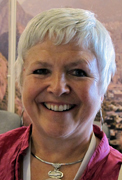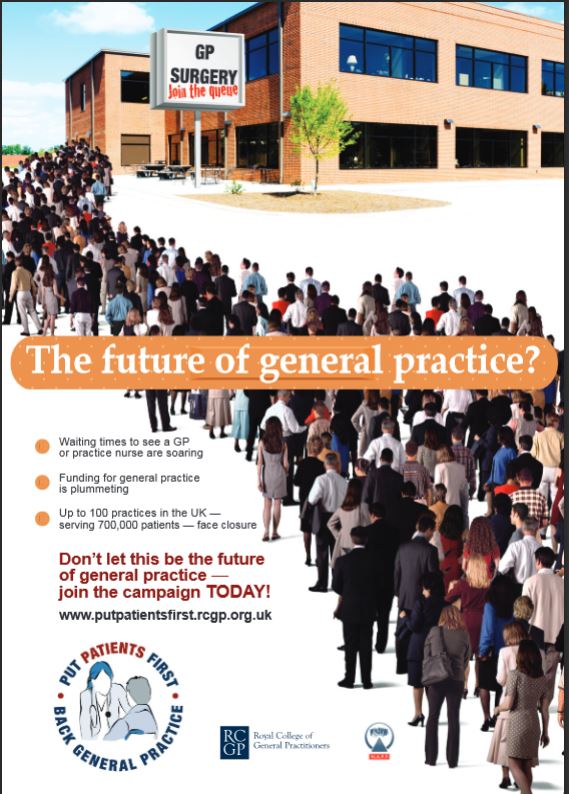Policy Bite: successful lobbying for family medicine
 español
español
Prof Amanda Howe, President-elect, writes:
Regaining momentum – an example from the UK of successful lobbying for family medicine
We shall have an election, in May, in the UK, and the health service has been a hot topic for all our political parties as their campaigns for votes roll out across the country. There was a Parliamentary debate about the GP (FM) workforce problems, and the government has now published a specific ‘Ten Point Plan’ for England to address this issue (
see the details), with a promise of £1 billion of new resources over the next four years to assist this.
I am writing this policy bite on this topic for two reasons – one is to share with you what a ‘roadmap’ to strengthen family medicine in your own country might need to include in terms of strategy: and also to share with you the things my own WONCA member organisation, the Royal College of General Practitioners (RCGP), did to try to secure this high level intervention.
In terms of the strategic headlines, the Plan addresses promoting General Practice as a career - advertising, incentives, encouraging all parties to talk family medicine up (not down!), and potential additional opportunities for young doctors willing to train in areas of need. It also addresses ways to retain people in practice, through incentives and support; increasing training capacity; and reducing barriers to getting back into the workforce after a career break. Finally, there are parallel initiatives looking at ways to expedite the move of doctors willing to change careers and move into FM – subject of course to additional training and qualification, as we do not want new GPs to be weak doctors. This will not be easy to do, and we wait to see the resources in practice, but it is a ‘win’ for the RCGP who have campaigned hard for a year to get this onto the political agenda.

So how did we do that? Even for a large FM organisations it is a real challenge – we got a press team and a policy team to work really hard with the Chair of Council and the Officers to mount a national campaign (
see campaign homepage). It required lots of staff and doctor time to cover all the media, get posters and petitions into GP clinics and practices, get these collected, secure press interviews, and build momentum through local and national contacts (including other academies, Colleges, and professional organisations). We have tried to use all parts of our own organisation – the regional offices, the young doctors’ groups, colleagues in the medical schools, and patients – to get the messages out and to improve careers’ advice and support at all levels of training.
Photo- RCGP campaign poster
In particular, many medical students do not see enough of family medicine in their training, or hear it being portrayed as a ‘low status’ discipline – we are trying to change this by welcoming medical students as associate members of our own College; and by direct links with the medical schools to challenge negative attitudes, and get more teaching and learning in family medicine. And we have tried to do our job well – because patient advocacy for their doctors has major political impact when fed into the right ears!
Of course the future is not secure, and the aftermath of an election can lead to very different outcomes to those expected. The RCGP will have to continue to ‘fight its corner’ and there is no magic wand – training new doctors take a long time, so we need to keep more people in the workforce and to bring GPs who have left back in wherever possible. But I learned a lot from watching what worked. Hopefully others trying to influence increases in GP workforce and resources can learn from our UK experience and that of others who have improved their situation.
We can share these stories at conferences and on the WONCA website. Let’s do so to encourage each other!
Amanda Howe
If you enjoy Policy Bites - we are inviting you to send us similar material - an important
piece of policy from your own organisation or setting that relates to
family medicine developments and that might be helpful to others. Please
send a summary, a link, up to 500 words. email to editor@wonca.net
Or join the online discussion
|